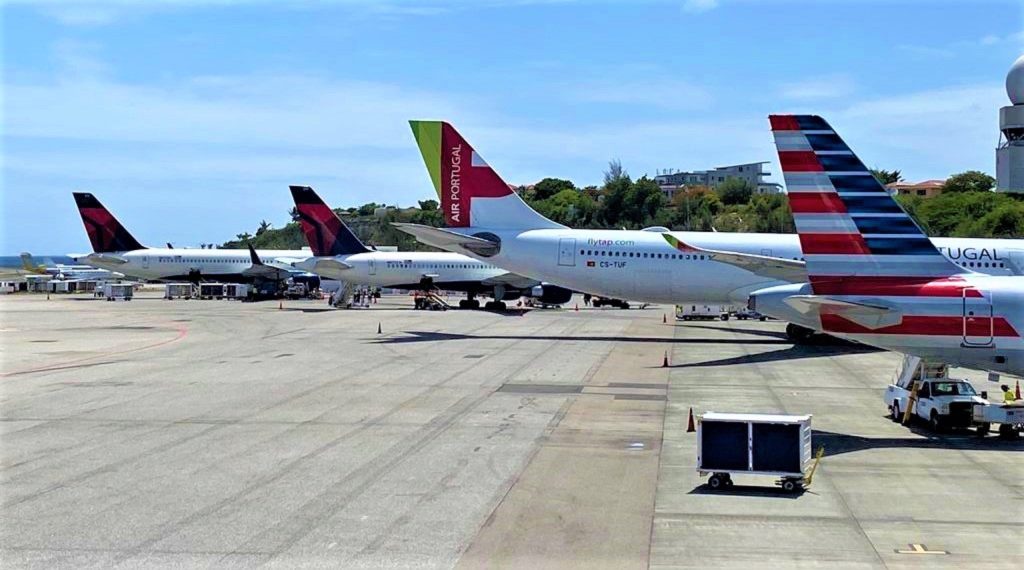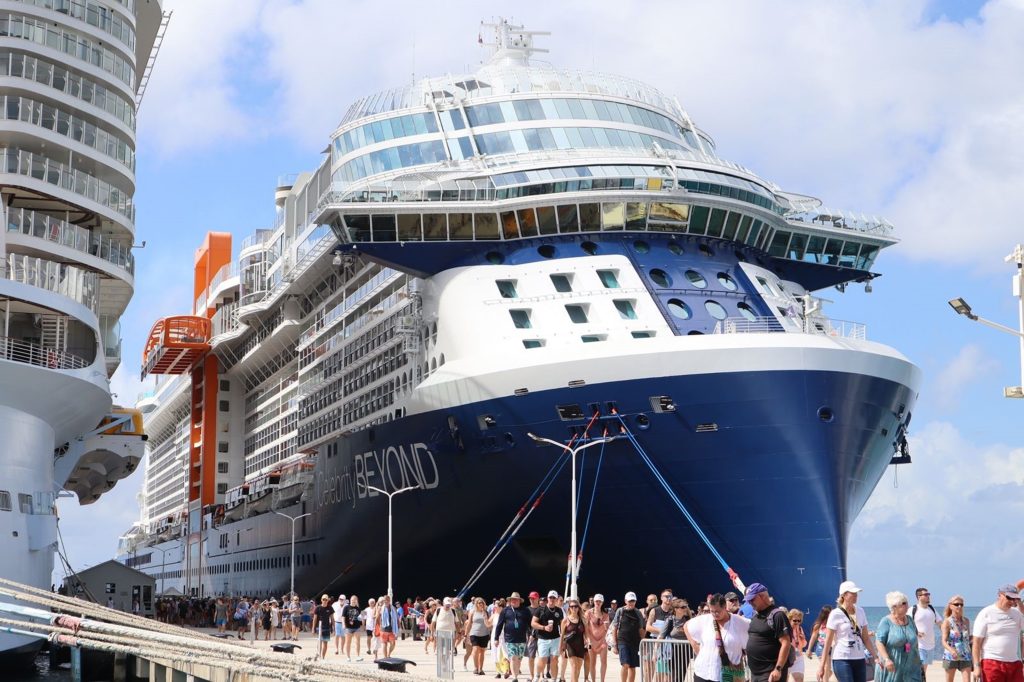Pay to enter: St. Maarten will soon charge Tourist Tax

PHILIPSBURG — Minister of Public Health, Social Development and Labour (VSA) Omar Ottley aims to introduce a 25-dollar fee for each person arriving in St. Maarten. On the 2023 Government budget the “arrival tax” mentioned by the minister is listed as Tourist Tax, with an estimated revenue of NAf 10 million by the end of December.
“Currently St. Maarten doesn’t have an arrival fee,” Minister Ottley said during the recent budget debate in Parliament, acknowledging that a new levy requires modification of the current tax system. “The details still have to be worked out,” the minister stated.

Presented with the plan to introduce a surcharge at ports of entry, Chief Executive Officer (CEO) of Princess Juliana International Airport Brian Mingo and Alexander Gumbs, CEO of Port St. Maarten Group of companies, insisted on the need to safeguard St. Maarten’s competitive advantage as a tourist destination in the region. “Feedback from these stakeholders forced us to do an impact study,” said Minister Ottley.
A consultant was hired to conduct a comparative study of the 21 airports within the region. “It showed that we are the twelfth most expensive,” Ottley said. “Introducing a fee of between $15 and $35 will only result in St. Maarten moving from twelfth to ninth place. In order to remain competitive, we are looking at a levy of 15 to 25 dollars.”
According to the Minister of VSA relevant legislation has been drafted and will soon be send to the Social Economic Council for review. “We have been working closely with Aruba to ensure that we got the best possible advice and have a strong approach.”
The Aruba tax regime is being modified and simplified in stages. There is no mention of an arrival fee. As of January 1st, 2023, the government of Aruba has increased the Tourist Tax rate levied on room nights with 3%, from 9.5% per night to 12.5% per night – whereas the room tax in St. Maarten is 5%.
Most hotels in Aruba collect about 27% for taxes and service. This includes an environmental tax (bijzondere belasting verblijf) of US$3 per occupied room per night for regular (transient) hotels. The time share sector is charged a fixed fee per stay, regardless of the amount of nights. Studios are charged US $10 per stay, the environmental levy for one bedroom units is US $15 and for two-bedroom US $25 will be charged. There is also an environmental levy for rental cars of US $1.

Visitors arriving on ferries from the surrounding islands will also have to pay an arrival fee.
In May 2017, the Government of St. Maarten already mentioned Aruba as an example, creating the perception that the mentioned taxes and services directly pour into the coffers of the Aruban Government. “Unfortunately, this is far from the truth,” stated the St. Maarten Hospitality Association (SHTA) at the time in a press release, issued in response to government’s plans “to literally double the barrier to enter St. Maarten”.
The big difference between Aruba and St. Maarten, SHTA explained, is that only about 20% of all tax revenues from tourists ends up in government coffers. “The bulk, some 80%, goes directly to the Aruba Tourism Authority (ATA) for marketing,” the representatives of the tourism sector on St. Maarten said. “It is perhaps good to mention that the Aruba hospitality industry agreed to an increase in the Occupancy Tax (from the initial level of 5% to then 9,5%) upon establishing the ATA.”

The SHTA has been fighting for the establishment of a Tourism Authority on St. Maarten for many years. If similar conditions as in Aruba would be created in St. Maarten, the hospitality sector is willing to accept a doubling of the room tax, SHTA said. “The wisdom of going that route is clearly reflected in the performance of Aruba’s tourism product.”
The 2023 budget post of NAf 10 million revenue from Tourist Tax drew fierce criticism from the seven Members of Parliament that hold an opposition post in the parliamentary debate. “What is the legal basis for collecting this tax? Government cannot just collect a fee for collecting sake,” said Party for Progress (PFP) Member of Parliament Melissa Gumbs. “The Minister stated that NAf 10 million is based on incoming arrivals at ports of entry, and that further details are being worked out and will be provided to Parliament once available. What does further detail mean? Does the minister mean the legislation that should come to Parliament to create the legal basis for collecting such a tax? And if so, when can we expect it to reach Parliament?”
Projections for expected revenue are not unusual, whether in a company or government, MP Gumbs said, “but when it comes to government there is the added layer of expected revenue relying on existing or soon to exist legislation. I find it hard to believe that the Financial Board of Supervision would advise financial projections to be included in the budget with no legal basis inside to justify the collection of such.”
 The current criticism echoes that of SHTA six years ago. “There is no way the increase in our occupancy taxes will lead to better performance by our tourism sector,” the association stated in 2017. “It is doubtful it will result in the additional revenues the Minister of Finance is hoping for. Quite the contrary. If we raise our taxes, our competition will most likely benefit, as it will decrease our competitive position.”
The current criticism echoes that of SHTA six years ago. “There is no way the increase in our occupancy taxes will lead to better performance by our tourism sector,” the association stated in 2017. “It is doubtful it will result in the additional revenues the Minister of Finance is hoping for. Quite the contrary. If we raise our taxes, our competition will most likely benefit, as it will decrease our competitive position.”
Arbitrarily raising taxes again without properly accounting for expenditure and ensuring investments in sustainability and marketing will only cause an increase in prices, which will lead to a decrease in revenue and economic activity, SHTA concluded. “That is something our economy can ill afford.”
###
Related articles:
Government to collect tax from guests booking via AirBnB
Generous travel allowances for ministers on a cut 2023 budget


























